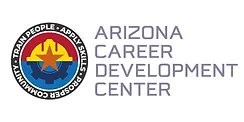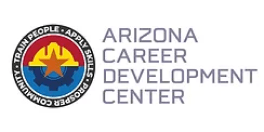Discover the Art of Learning by Doing
ACDC firmly believes in the efficacy of interactive learning. Our training programs provide individuals with immersive and practical experiences that go beyond traditional classroom teaching. Participants learn practical skills and knowledge through activities, simulations, and real-world scenarios that can be applied to their field. With our focus on experiential learning.
We create an environment that nurtures hands-on learning. Our trainers are industry professionals with extensive experience, providing participants with valuable insights and guidance. We utilize state-of-the-art facilities, equipment, and technologies to simulate real-world scenarios, ensuring that participants are well-prepared for the challenges they may face in their careers. By embracing hands-on learning, individuals develop not only technical skills but also important soft skills such as communication, collaboration, and problem-solving. They learn how to work effectively in teams, adapt to changing circumstances, and thrive in dynamic work environments.
Exquisite Industrial Exposure through ACDC
We understand the importance of providing participants with real-world exposure to the industry. Through our training programs, we offer a unique opportunity to go beyond theoretical concepts and gain firsthand experience in the field. This immersive approach ensures that participants not only grasp theoretical knowledge but also understand its practical application in an industrial setting. We empower people to become well-rounded professionals by connecting theory to practice and deepening their understanding of the industry where they want to work. Our simulated work environment training in Arizona provide participants with firsthand experience in the industry through three key avenues:
- Site Visits: Participants have the opportunity to visit industrial sites, observe operations, and witness industry best practices in action.
- Guest Speakers: We invite industry experts and professionals to share their experiences, insights, and practical knowledge, providing participants with valuable industry perspectives.
- Hands-on Projects: Participants engage in hands-on projects that simulate real-world scenarios, allowing them to apply their learning and develop practical skills.
Significance of Hands-on Learning Experience
Hands-on learning experiences hold immense significance in today’s educational landscape. It offers several advantages, including active engagement and practical skills’ development. Unlike passive learning methods, hands-on activities actively involve participants in the learning process, allowing them to interact with materials, tools, and real-world scenarios. This active engagement enhances knowledge retention and understanding, as participants directly experience the concepts they are learning.
Additionally, hands-on learning enables the development of practical skills that are essential for success in various fields. By practicing concepts practically, people not only understand theory but also gain the skills needed to do tasks and solve problems well. Developing practical skills is important for preparing individuals to meet industry demands. They gain valuable experience by applying their knowledge to real-world situations.

Significance of Hands-on Learning Experience
Hands-on learning experiences hold immense significance in today’s educational landscape. It offers several advantages, including active engagement and practical skills’ development. Unlike passive learning methods, hands-on activities actively involve participants in the learning process, allowing them to interact with materials, tools, and real-world scenarios. This active engagement enhances knowledge retention and understanding, as participants directly experience the concepts they are learning.
Additionally, hands-on learning enables the development of practical skills that are essential for success in various fields. By practicing concepts practically, people not only understand theory but also gain the skills needed to do tasks and solve problems well. Developing practical skills is important for preparing individuals to meet industry demands. They gain valuable experience by applying their knowledge to real-world situations.

How Hands-on Learning Experience Can Help
Best hands on training experiences is a dynamic approach that goes beyond traditional teaching methods. It involves active participation, exploration, and experimentation, allowing individuals to take ownership of their learning journey. By engaging in hands-on activities, individuals can apply theoretical knowledge in practical settings, bridging the gap between theory and practice. This experiential learning approach fosters a deeper understanding of concepts, encourages critical thinking, and promotes the development of essential skills. Hands-on learning encourages curiosity, creativity, and innovation, helping people become lifelong learners who are prepared for the challenges of today’s world. Hands-on learning experiences can significantly benefit individuals in the following ways:

